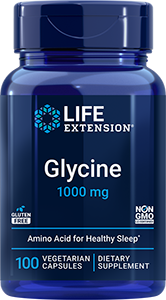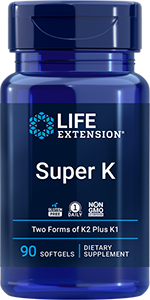
Newsletter
Newsletter
Benfotiamine intake associated with reduced progression of cognitive decline

A randomized phase II trial reported in 2020 in the Journal of Alzheimer’s Disease resulted in positive effects among individuals with amnestic mild cognitive impairment or mild Alzheimer’s dementia who were given capsules that contained benfotiamine, a derivative of thiamine (vitamin B1).
The trial included 70 cognitively impaired men and women who received physical examinations and completed the Mini-Mental Status Exam (MMSE) prior to enrollment. Prospective candidates received positron emission tomography (PET)/CT scans of the brain to confirm the presence of amyloid plaques that are characteristic of Alzheimer disease) and other general blood tests, an electrocardiogram and neurological exam prior to enrollment. Screening tests commonly used to test for diabetes were also performed prior to enrollment, and participants were required to have a hemoglobin A1c (HbA1c) of less than 8% and/or a fasting glucose of less than 200 milligrams per deciliter to be enrolled in the trial.
APOE genotype was determined upon enrollment in the trial. The presence of one or two copies of the APOE4 variant of the APOE gene is associated with a greater risk of Alzheimer disease in comparison with APOE2 or APOE3.
Blood testing conducted at the beginning and end of the trial measured levels of vitamin B1 and advanced glycation end-products (AGEs), which are formed when fats or proteins react with sugar in the blood. (Research suggests that AGEs are predictive of long-term decline in cognition-related daily living performance in Alzheimer disease patients.) Participants also underwent fluorodeoxyglucose positron-emission tomography (FDG PET) at these time points to assess brain glucose utilization which, when reduced, is associated with cognitive decline. Cognitive tests, including the Alzheimer Disease Assessment Scale-Cognitive Subscale, Clinical Dementia Rating and others were administered at the beginning of the study and at varying time points thereafter. Participants received capsules containing 300 milligrams benfotiamine or a placebo twice daily for one year.
At the end of the treatment period, thiamine levels were significantly elevated in the benfotiamine-intake group. The 12 month increase in Alzheimer Disease Assessment Scale-Cognitive Subscale scores (indicating increased cognitive dysfunction) was lower among those who received benfotiamine compared to the placebo group. Benfotiamine intake participants additionally experienced 77% less deterioration in Clinical Dementia Rating scores compared to the placebo group; however, the effect seen with benfotiamine was stronger among participants who did not have the APOE4 variant. Benfotiamine was also associated with a significant reduction in the increase in AGEs compared to the placebo, which again was stronger in noncarriers of APOE4. FDG PET data suggested that participants without APOE4 were more responsive to benfotiamine intake.
“Benfotiamine is safe and cost effective, and the results of this pilot study are encouraging, providing preliminary evidence of efficacy,” authors Gary E. Gibson of Weil Cornell Medicine and colleagues concluded. “Our next step is to propose a larger clinical trial appropriately powered to replicate our findings. We believe that further studies would be very valuable to determine whether benfotiamine may be helpful in delaying onset or treating Alzheimer disease.”
Products
Apply What You've Learned: Benfotiamine
- While thiamine (vitamin B1) is a water-soluble vitamin, benfotiamine, a derivative of thiamine, is fat- soluble.
- Benfotiamine’s fat solubility makes it easier for the nutrient to penetrate the cells’ membranes in comparison with thiamin. This can aid intracellular reactions that require vitamin B1 as a cofactor.
- Benfotiamine blocks three major pathways of damage inflicted by high blood sugar levels. One of these pathways involves the formation of advanced glycation end-products (AGEs), which are more abundantly produced in diabetics and contribute to complications of the disease.1
- Advanced glycation end-products (AGEs) have not only been implicated in the health complications experienced by diabetics but contribute to many of the phenomena associated with aging.2
References
- Hammes HP et al. Nat Med. 2003 Mar;9(3):294-9.
- Kim CS et al. J Exerc Nutrition Biochem. 2017 Sep 30;21(3):55-61.
Featured Life Extension Magazine® Article
Cistanche Activates Immune Function by Marsha McCulloch, RD
Cistanche tubulosa is a plant used in Chinese medicine to support immune function and other aspects of health. As such, it may be useful to help maintain the healthiness of the immune system during aging, when immune function begins to decline. Among the many findings for Cistanche in regard to immunity is an ability in an animal model to increase the power of an influenza vaccine.
Cistanche has shown promise for the promotion of longer life. In a study of roundworms, average life span was extended by 13.64% among those treated with Cistanche in comparison with an untreated group. Fruit flies given Cistanche for 20 days had an average lifespan extension of up to 18.9%.
What's Hot
Health Concern
High homocysteine, vitamin deficiencies more common in cognitively impaired adults
The October 2020 issue of MEDICC Review published the finding of Cuban researchers of a greater incidence of high homocysteine levels and low levels of several vitamins among older men and women with mild cognitive impairment or Alzheimer disease.
Alzheimer Disease
Alzheimer’s disease is a neurodegenerative disorder characterized by cognitive decline that eventually leads to death. The underlying cause of Alzheimer’s disease is not fully understood; however, it appears to be the consequence of many converging factors of aging, including accumulation of toxic protein aggregates in the brain, mitochondrial dysfunction, oxidative stress, and inflammation. Chronic infection with bacterial or viral pathogens also seems to play an underappreciated role in progression of the disease.
Related Life Extension Magazine® Articles

Benfotiamine Improves Cognition in Alzheimer’s Patients
Elevated blood sugar impacts the brain and can lead to cognitive conditions such as Alzheimer’s. A groundbreaking study showed that benfotiamine can improve cognition in these patients.

How Glycation Accelerates Aging
When sugar (glucose) reacts with the body’s proteins, the resulting tissue glycation accelerates aging. There are a number of strategies that reduce toxic glycation reactions and help overcome their consequences.
Life Extension Magazine® Issue Now Online
A remarkable number of healthy-longevity findings have been published over the past 18 months.





